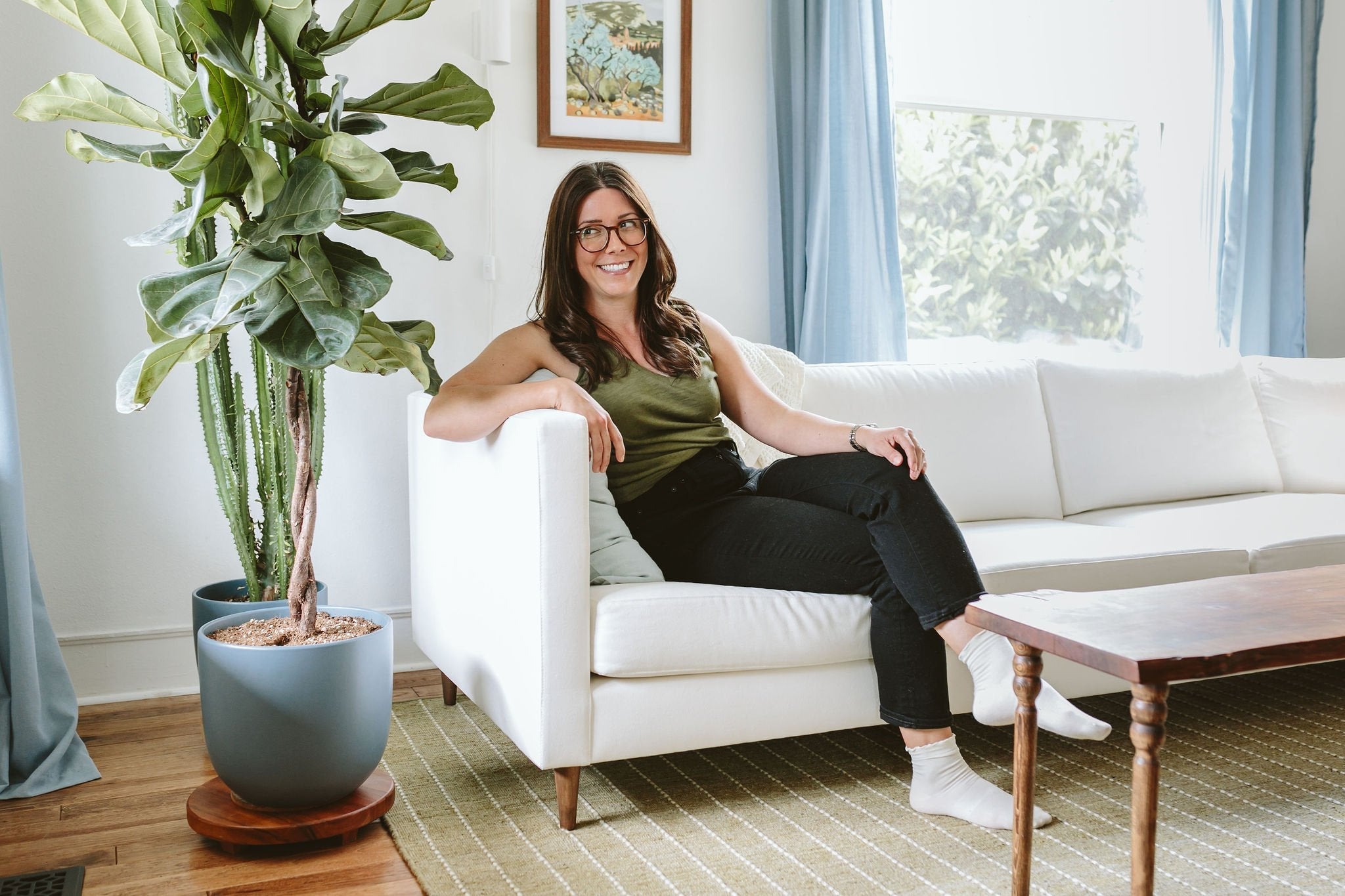
Why Your Home Environment Matters: A Conversation with Dr. Meg Christensen of Interior Medicine

Dr. Meg Christensen
Dr. Meg Christensen is the founder of Interior Medicine, dedicated to promoting healthier living environments by reducing exposure to toxins in the home. With a background in clinical research and a passion for preventive health, she offers practical solutions for creating safer, wellness-focused spaces. Dr. Christensen's work is rooted in the belief that the home should be a sanctuary for health, and she is committed to helping individuals make informed choices to protect their well-being.
For more insights and resources, visit Interior Medicine at www.interiormedicine.com.
Dr. Christensen, you founded Interior Medicine with the mission to promote healthier home environments. Can you elaborate on why this is an important mission to you?
Absolutely! I worked in clinical research for many years, and while it was always a thrill to see patients get a promising new drug as part of a research study, the thrill was always tempered by the fact that they had to come to the hospital in the first place. I felt this way for every patient, but especially young ones going through cancer treatment.
We’ve known for decades that PFAS may be carcinogenic, yet PFAS are still added to non-stick pans and couch upholstery and the other things we come into contact with in our homes every single day. I wish our society and economy were set up to protect people from getting sick, but until that’s a reality, we have to push for prevention as individuals. Luckily, we have so much power— when we start demanding that the things in our home are not carcinogenic, it creates change in the market, and my greatest hope is that in turn, this will create change in the number of cancer cases – and all exposure-related illnesses.

You have mentioned that the average American spends 90% of their time indoors. What are some of the biggest challenges people face when it comes to maintaining a healthy home environment?
I think the biggest challenge is the invisible nature of most indoor pollutants. Healthy air and water are the most important aspects of a healthy home, simply because they’re our two greatest daily exposures— we’re constantly breathing air, regularly drinking water, and most of us shower or bathe daily. It’s not only challenging to convince skeptics that these contaminants exist and are harmful, it’s also difficult for those already on board to find tools that are as effective as they say they are at removing them, because you can’t necessarily see them working! And, at worst, the invisible can also create excess fear– it’s dorky, but this is why I love testing and monitors so much– it helps provide some objective comfort.


Your short-form content often makes us laugh while educating us about important topics. How do you see humor playing a role in your approach to discussing serious health and environmental issues?
Humor is one of the best ways I can show respect to my community! You’re busy, your attention is valuable, you can see the levity even in topics this serious. So, I want to create useful, enjoyable bits of information that respect your time, energy, and intelligence. I hope I can use humor to inspire hopeful action, rather than generate the paralysis that often accompanies fear.
With so many toxins and contaminants in our water supply, how can shower filters help improve our overall health?
I often tell people to prioritize healthier home purchases by what they come into contact with most closely and most often. Showering is one of those things— not only is our skin affected by the water (and what’s in it), we also absorb it through our skin into our bodies, *and* showers are unique because they are hot enough to create vapor, meaning we breathe water and its contaminants directly into our lungs.
I know a lot of people brush their teeth or water-pick in the shower, too, meaning they also drink a little shower water every day. Bottom line is, it’s a daily activity that affects all of our exposure pathways, and a filter is a very easy way to lessen the amount of water contaminants making their way into our bodies regularly.
What are some specific features that people should look for when choosing a shower filter?
The #1 feature to pay attention to is that the filter has been tested by a high-quality, outside lab, separate from the company making the shower, verifying that it actually removes what it says it can! So many shower filters make wild claims about what they can remove, but they’ve never actually been tested. There is no federal regulation for shower filters yet, and water contaminants are invisible, so this is the best way to make sure your investment is truly working.
What are your future goals for Interior Medicine, and how do you plan to continue promoting healthier home environments?
In the short term, I’m working on adding heat pumps, induction stoves, and more fundamental ways to improve your home’s indoor air and water quality. In the long term, my goal is to expand the information on my website and reach as many people as possible until healthier furnishings are standard, rather than the exception!


We often hear that some of the best ideas come to us in the shower. Have you had any interesting shower thoughts lately, especially related to your work or wellness?
Yes! I recently had the shower thought that it would be so cool to have an Interior Medicine hotel chain. The rooms would be outfitted with healthy mattresses, air purifiers, shower filters, organic sheets, and circadian light bulbs. People could experience healthier living while traveling, if they’re just curious about what a healthier environment feels like, or if they’re sensitive to standard hotels. Plus, I just really love traveling and obsessing over the cute details of where I stay, so it would be very fun. Luckily, shower thoughts don’t need to include logistics or be based on rational thinking ;)
We extend our heartfelt thanks to Dr. Meg Christensen for her valuable contribution to this post and for sharing her expertise on creating healthier home environments.





0 comments